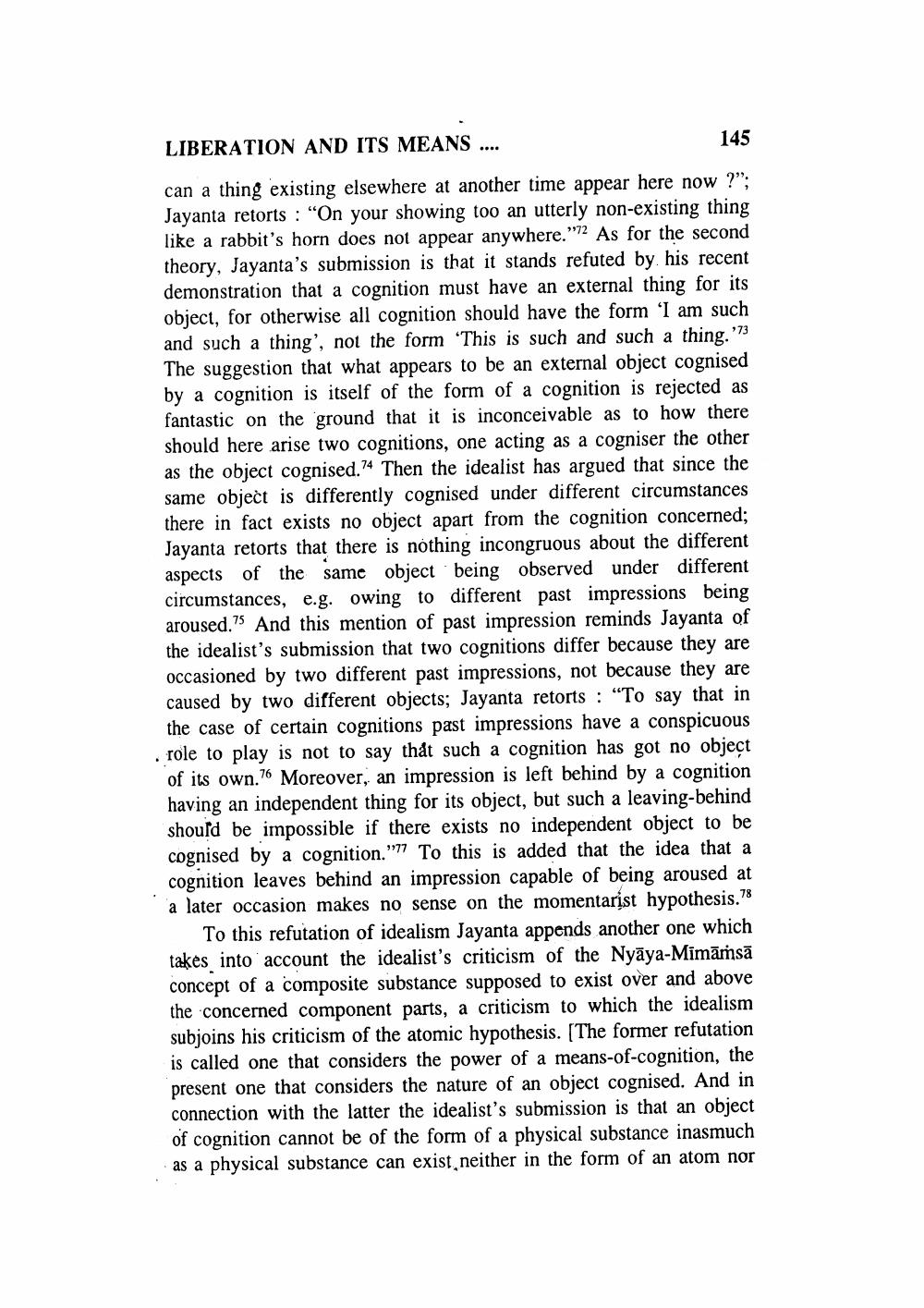________________
LIBERATION AND ITS MEANS....
145
72
can a thing existing elsewhere at another time appear here now ?"; Jayanta retorts: "On your showing too an utterly non-existing thing like a rabbit's horn does not appear anywhere." As for the second theory, Jayanta's submission is that it stands refuted by his recent demonstration that a cognition must have an external thing for its object, for otherwise all cognition should have the form 'I am such and such a thing', not the form 'This is such and such a thing."73 The suggestion that what appears to be an external object cognised by a cognition is itself of the form of a cognition is rejected as fantastic on the ground that it is inconceivable as to how there should here arise two cognitions, one acting as a cogniser the other as the object cognised." Then the idealist has argued that since the same object is differently cognised under different circumstances there in fact exists no object apart from the cognition concerned; Jayanta retorts that there is nothing incongruous about the different aspects of the same object being observed under different circumstances, e.g. owing to different past impressions being aroused." And this mention of past impression reminds Jayanta of the idealist's submission that two cognitions differ because they are occasioned by two different past impressions, not because they are caused by two different objects; Jayanta retorts: "To say that in the case of certain cognitions past impressions have a conspicuous role to play is not to say that such a cognition has got no object of its own.76 Moreover, an impression is left behind by a cognition having an independent thing for its object, but such a leaving-behind should be impossible if there exists no independent object to be cognised by a cognition." To this is added that the idea that a cognition leaves behind an impression capable of being aroused at a later occasion makes no sense on the momentarist hypothesis."
To this refutation of idealism Jayanta appends another one which takes into account the idealist's criticism of the Nyāya-Mimāmsā concept of a composite substance supposed to exist over and above the concerned component parts, a criticism to which the idealism subjoins his criticism of the atomic hypothesis. [The former refutation is called one that considers the power of a means-of-cognition, the present one that considers the nature of an object cognised. And in connection with the latter the idealist's submission is that an object of cognition cannot be of the form of a physical substance inasmuch as a physical substance can exist neither in the form of an atom nor




